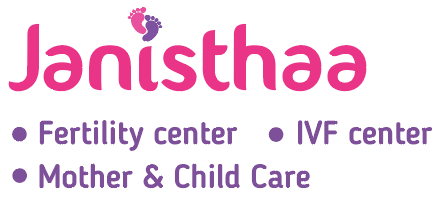Although known to be the second most populous country in the world, statistics state that the fertility rates in India have decreased by 50% in the last 25 years. In the coming years, this is expected to decline below the replacement level at which the population is known to be steady. According to the Indian Society of Assisted Reproduction, one out of six couples in the urban area is affected by fertility issues. Thus, approximately 30 million individuals are known to be suffering from Female Infertility.
Causes and Risks
The causes and risks associated with fertility issues are plenty. Due to the change in environmental conditions, economy, society and other factors, the causes for fertility issues have also doubled. To begin with, age is a factor that is often related to difficulty in conception.
Female Infertility above the age of 35 are known to have difficulties and with increased choice of delayed pregnancy, often due to career choices, fertility is easily affected. Physiological issues include complications with ovulation – Polycystic Ovary Syndrome (PCOS), premature ovarian failure (loss of eggs from ovaries), imbalance of hormones; issues with the fallopian tubes (damage or blockage), endometriosis (extra tissue growth), and uterine factors such as tumours, inflammation, birth defects etc. Of late, it has been noted that a lot of women under the age of 30 experience low levels of Anti-Mullerian Hormone (AMH), which leads to ageing of the ovaries faster than one’s chronological age.
Several lifestyle practices that are on the rise have also added as risk factors. Smoking, intake of alcohol and several recreational drugs are known to affect fertility. Smoking damages the cervix and fallopian tubes, increasing chances of miscarriage and ectopic pregnancy. Obesity or being overweight affects the normal process of ovulation, due to lack of exercise and sedentary lifestyle. Stress, due to increased working hours, career goals or other factors, is another huge impediment that adds to fertility issues. Hormonal imbalances are often caused by high-stress levels.
The above risk factors are in fact interlinked to each other. More stress leads people to indulge in certain habits. This could lead to other physical conditions that need to be corrected in order to conceive.
A solution to this problem
Although the picture looks a bit grim, measures can be taken up in preventing the situation or correcting the same, in cases of complications. First and foremost, it is important for Female Infertility to pay special attention to their health. Eating well, healthy and on time is of prime importance.
A healthy and balanced diet, free of junk and full of anti-oxidants (berries, beans, dark chocolate, red cabbage etc) helps improve fertility. Regular exercising to keep the Body-Mass Index (BMI) in the normal range of 18.9 to 25, helps in healthy ovulation. It helps prevent issues of PCOS, hormonal imbalance etc. Regular health check-ups on blood pressure, diabetes, and thyroid are also essential. At other times, certain factors may be far more complicated and require medical help. It is important to consult an experienced gynaecologist who understands the conditions and has a well-equipped centre with all the facilities to provide the right kind of treatment.
At, Dr Swetha.Y.Baratikkae’s Janisthaa Fertility Center and Hospital, located in Basaveshwar Nagar, numerous expectant couples visit on a day to day basis with a wide range of problems. They are treated with the utmost care by all the staff and experts at the centre.
Diagnosis is made using the latest technology that is available under the same roof, to avoid the patients from running pillar to post. Once diagnosed, the condition is explained in most simple terms to create awareness and appropriate treatment method is suggested. Several visitors have received successful treatment and have found the centre to be a place that truly opens the doors of parenthood.
For more information on the various treatment methods available at the centre, visit the website https://janisthaaivf.com/ and book a free consultation to find solutions to any kind of fertility-related issues.

